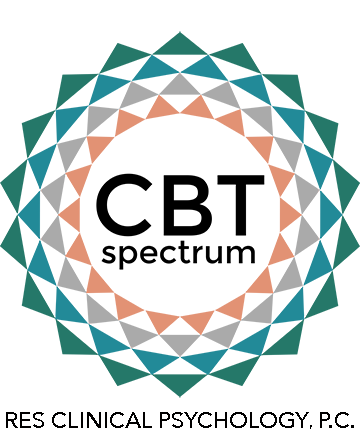AUTISM
AUTISM IN CHILDREN
Experts agree that the earlier your child can receive Autism related services the more effective he or she will be in developing key communication, social, and thinking skills.
We will help your child continue to develop his or her strengths and teach new ways to address current struggles. We will also guide you and your child to better understand their "tricky brain" and demystify why he or she may be exceptionally gifted but still often struggle with things that people not on the spectrum, or "neurotypicals" do not.
Effective treatment with your child will likely focus on:
- Cognitive Behavior Therapy to help your child be more flexible, deal with strong emotions, and cultivate "I can do" and "I can handle it" mindsets
- Social-thinking and social skills training
- Daily living skills (such as getting ready for school, dressing self, hygiene, and becoming more independent)
- Parent training and support
When needed, we will also help support you and your child in putting together a plan and supporting "team" to help with evaluation, school needs, proper medication (when appropriate), executive function support, occupational or physical therapy, and speech/language therapy.
AUTISM IN ADULTS
Though Autism is commonly diagnosed in children it often goes undiagnosed until adolescence or adulthood. In general, autism "shows up" as difficulties in socialization, atypical communication, and thinking and behaving in rigid ways. You may find, even at a later stage in life, that receiving a diagnosis can provide a sense of relief and understanding. If needed, we can provide diagnostic consultation and expertise or help guide you towards appropriate evaluation if you are unsure if you have autism.
As a therapist who understands Autism, we will help you understand how it impacts your life and collaborate with you to learn skills to help you have a more meaningful and successful life.
If you often feel highly anxious, annoyed or down, underemployed, unable to make and sustain friendships or romantic relationships that you hope for, frustration with inability to meet your own goals and discomfort in social situations,
We can help you learn a new way.
Unfortunately, many of our patients describe earlier experiences in therapy of misdiagnosis and frustration while feeling largely misunderstood by previous therapists; we will be sure to communicate understanding and active support while simultaneously guiding you to learn critical skills and new problem-solving techniques. Therapy will be tailored to your needs but will likely address difficulties with processing information, executive function (planning, organizing, memory, flexibility, inhibition, goal setting), anxiety, anger and frustration, learning to think socially, understanding nonverbal communication, and sensory issues.
WHAT IS AUTISM (ASD)?
What previously used to go by many different names (PDD-NOS, Asperger’s Syndrome, Autism, and High-Functioning) is now more commonly know as Autism Spectrum Disorder or ASD. There are many similarities among individuals with ASD in regard to the challenges they face and the strengths and talents they have; however, it’s important to know that no two people with ASD are the same. If you have met one person with an ASD, you have only met one person with an ASD.
- Autism affects individuals of all races and socio-economic backgrounds; it impacts people of all intellectual and verbal abilities including extremely verbal individuals with high intelligence.
- While ASD is more common in males, there are also females with Autism. Their experience can be a little different, and unfortunately the diagnosis of Autism may often be overlooked in girls.
- Overall, individuals with Autism tend to think, socially relate, move their bodies, and experience emotions and physical sensations differently than the average or “neurotypical” person.
- Differences can look like: poor eye contact and facial expressions mismatched with the situation, thinking and acting in a very rigid way, being too literal and have an atypical speech pattern (such as monotone or peculiar rhythm), trouble with strong emotions that may lead to a meltdown or shutting down, having very specific or limited interests, being overly sensitive to noises, touch, textures, and food, difficulty understanding the unwritten social rules, and trouble initiating or maintaining both conversations and friendships.
FOR MORE INFORMATION & RESOURCES ON Autism:
- Asperger Center for Education & Training
- Asperger Syndrome and High Functioning Autism Association
- Autism Science Foundation
- Autism Speaks Tool Kits
- National Institute of Mental Health
- Spectrum Services
